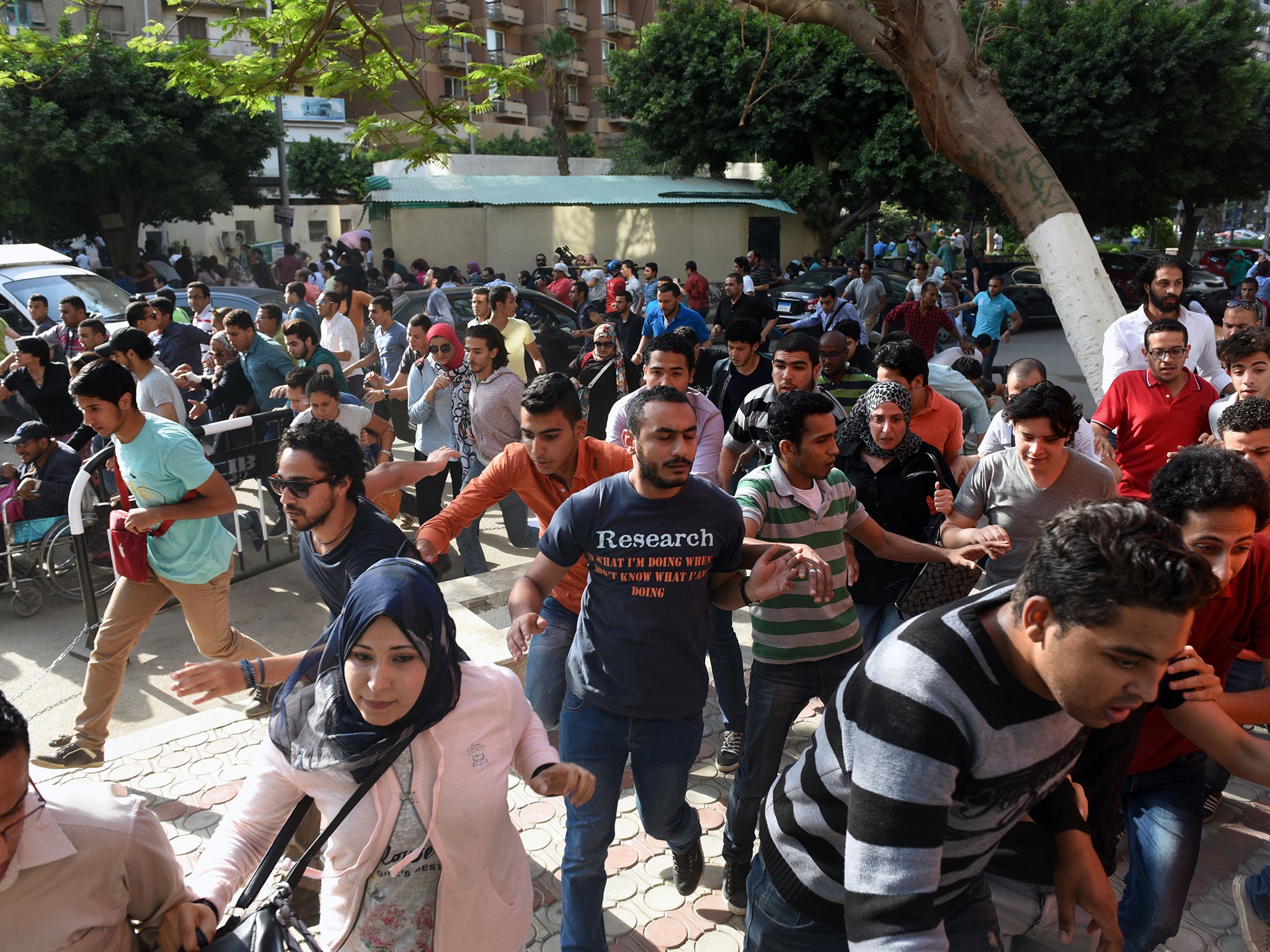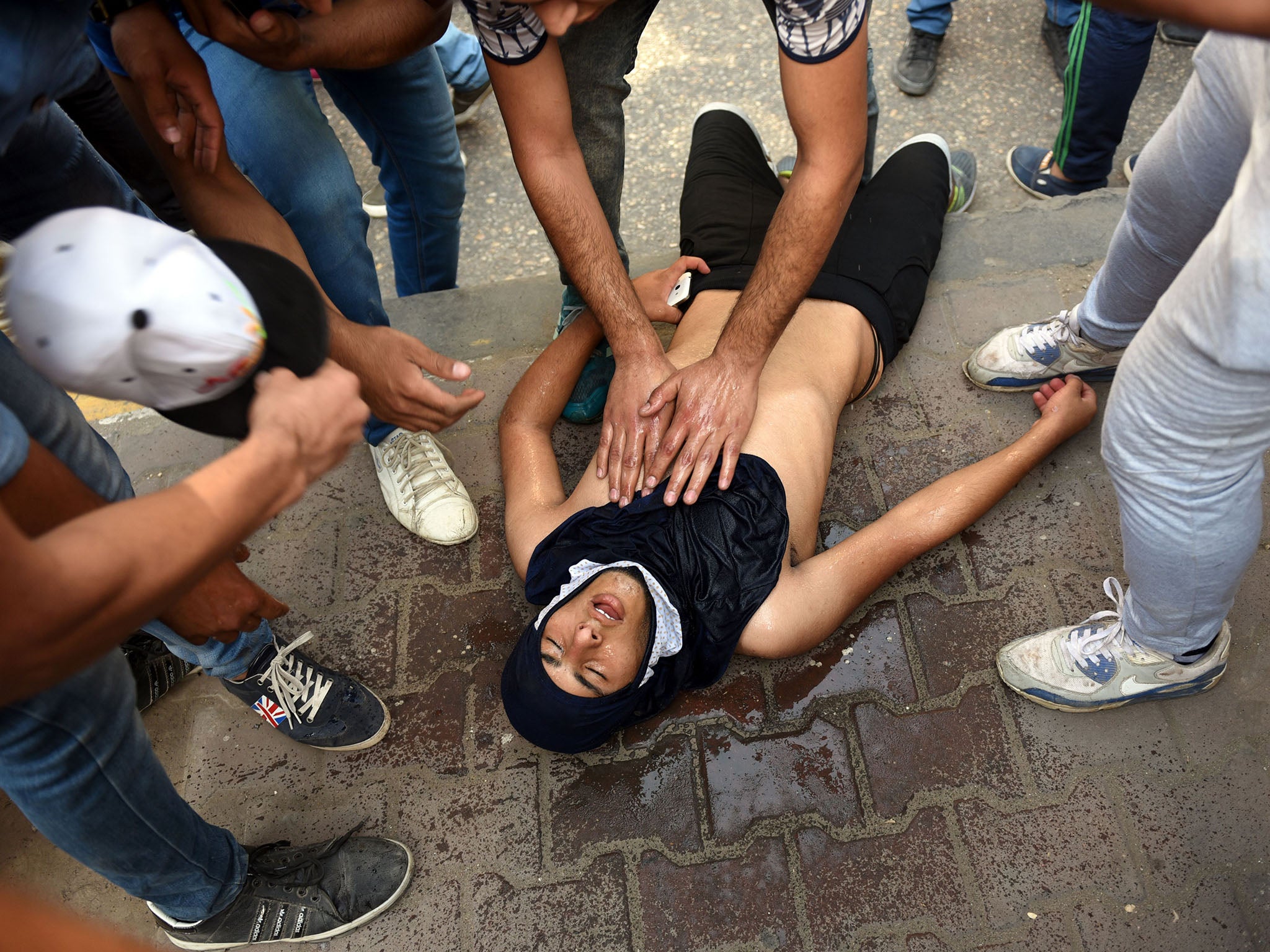Fears of increased unrest in Cairo following arrests of activists and journalists by Sisi regime
The sheer scale of the security operation around Tahrir Square and across the capital illustrate the wariness of the authorities at what is unfolding

Troops, armed police and armoured cars were on the streets of Cairo following the arrests of dozens of activists and members of the media as Egypt’s president Abdel-Fattah el-Sissi faced the most serious and sustained protests to his rule since coming to power nearly two years ago.
There has been rising popular discontent over a range of issues with the President claiming his opponents were seeking to endanger national security. But the focal point of the demonstrations called for Monday was nationalistic - anger over the decision to hand over two islands on the Red Sea to Saudi Arabia,
The sheer scale of the security operation which blocked off Tahrir Square, the symbolic centre of protests, the journalists and doctors union, and presence of forces in their thousands on the capital’s ring roads and the city centre illustrated the wariness of the authorities at what is unfolding.
Monday was also the anniversary of Sinai Liberation Day, commemorating the withdrawl of Israeli forces from the Peninsula in 1982. The military and the Interior Ministry stated that they were deploying to “protect peaceful citizens” who wanted to celebrate the occasion. But apart from a few dozen people waving flags on the streets of the affluent district of Mohandiseen the mood was sombre with expectation of troubles ahead.
Police raids continued on Monday with three journalists detained, Khaled el-Bashy, a member of the Press Syndicates Board, confirmed. An activists’ group, Freedom for the Brave, said more than a hundred people were arrested last week.

Separately, the Egyptian authorities were reported to be investigating the Reuters news agency over its report that a 28-year-old Cambridge student, Giulio Regeni, whose body was found on the side of a road in Cairo with marks of torture was detained by police the night he disappeared. The agency stressed that it had based its report on six police and intelligence sources. The Egyptian government has strongly denied that its officials were involved in the death.
President Sisi has been accused of “selling” national territory after saying that the two islands, Sanafir and Tiran, will come under Saudi sovereignty. He has sought to stress that the islands originally belonged to the Kingdom and had been put under Egyptian protection in 1950 to stop them being occupied by Israel.
Despite the “protection”, the Israelis captured the uninhabited islands in both 1956 and 1982, returning them voluntarily to Egypt on both occasions. President Sisi’s announcement came during a visit by King Salman of Saudi Arabia. The Kingdom announced a multi-billion dollars aid and investment package for Egypt at a time when the country is in dire financial straits.
The Saudis had been supportive of President Sisi’s government ever since, as the head of the armed forces, he overthrew the Muslim Brotherhood government of Mohammed Morsi. The Brotherhood, supported at the time by Qatar, had long been regarded with loathing by the Saudis.
There had been mass protests against the Muslim Brotherhood government and the commander’s supporters held that he had provided leadership to a revolution. Mr Morsi’s followers claimed a blatant military coup had taken place. Since then more than a thousand people have been killed and an estimated 40,000 jailed. Amnesty International claimed recently that Egypt has reverted “back to being a police state”.
During the first of the current round of protests against the Sisi government, crowds shouted “ people want to bring down the regime”, an echo of the slogans used in the uprising which brought down Hosni Mubarak in 2011 and also used against Mohammed Morsi two years later.
Join our commenting forum
Join thought-provoking conversations, follow other Independent readers and see their replies
Comments